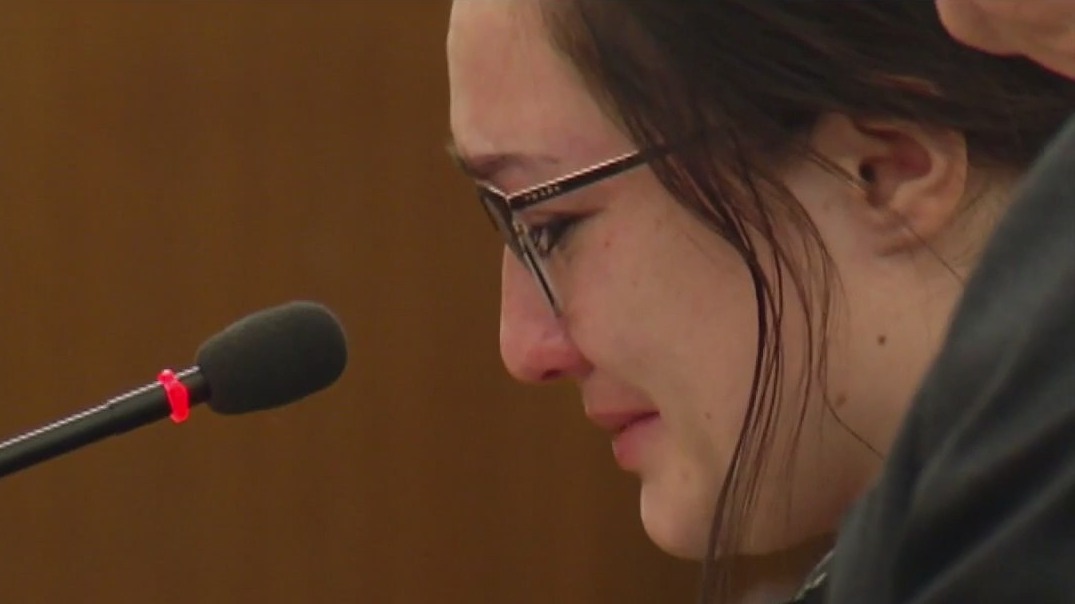Man now eligible for parole in 2008 murder of Minneapolis mom, son after law change

File photo gavel, hammer and book (Photo by Wodicka/ullstein bild via Getty Images) (Getty Images)
ST. PAUL, Minn. (FOX 9) - A man convicted as a teenager for the 2008 murder of a boy and his mother in Minneapolis is now eligible for parole after a new Minnesota law affecting juvenile sentences.
Brian Flowers was 16 years old when the fatal stabbing of 10-year-old Robert Shepard and his mother, Katricia Daniels, occurred on June 12, 2008. Flowers, along with his accomplice, Stephon Edward Thompson, were convicted on first-degree murder charges for the crime.
Flowers was sentenced to two consecutive life terms (one after the other) without the possibility of parole. However, after changes to federal and state law between 2012-16, those convicted as juveniles would have their sentences changed to life with the possibility of parole.
After a lengthy legal process, Flowers was re-sentenced on Feb. 23, 2024, to serve his two life sentences concurrently (at the same time). Originally, he would have been eligible for parole in 2038, but a state law change from the 2023 legislative session affecting juvenile paroles, now makes him eligible.
The new law says those serving concurrent life sentences are eligible for parole after 15 years, and those serving two consecutive life sentences are eligible after 20 years. Flowers has served 5,733 days (just over 15 years), making him immediately eligible for parole.
Ramsey County Attorney John Choi, whose office took over the prosecution given a potential conflict of interest with the Hennepin County Attorney’s Office, released a statement saying in part:
"The law is an expression of our community’s values and when the law changes to it is important guidance on how prosecutors should exercise our decision making. From our perspective, it is significant that, on appeal, the Minnesota Supreme Court determined in 2010 that Mr. Flowers’ role in this case was far less than his co-defendant. We came to the same conclusion after reviewing this case for the past ten months and therefore resolved this case in a manner that reflected his lesser culpability, achieved an end to the litigation, and recognized the reality that the distinction between consecutive and concurrent sentences for Mr. Flowers was small due to retroactive changes in the law made by the Minnesota Legislature in 2023."
Murder law change
Minnesota lawmakers also made changes to a felony murder law during the 2023 legislative session. The law on aiding and abetting felony murder was rewritten so that only those either directly connected to the killing or major participants in the crime, can be charged, convicted, and ultimately face the harshest consequences. That law can be applied retroactively, meaning those already in prison can have their cases re-sentenced on lesser charges.
Two women in Minnesota had their convictions reduced earlier in February to a lesser count of aiding and abetting first-degree burglary, and they were released from prison more than 2.5 years early.
State court administrators report there have been dozens of cases where someone filed a preliminary application to vacate a conviction of aiding and abetting felony murder since the new law was enacted. The newly established court process does not require the support of the local prosecutor. A judge makes the ultimate determination if a person is eligible.

2 released from prison after felony law change
Two women, Megan Cater and Briana Martinson, were released from Minnesota prison this week after having their sentences reduced under new legislation redefining the crime of aiding and abetting felony murder.

